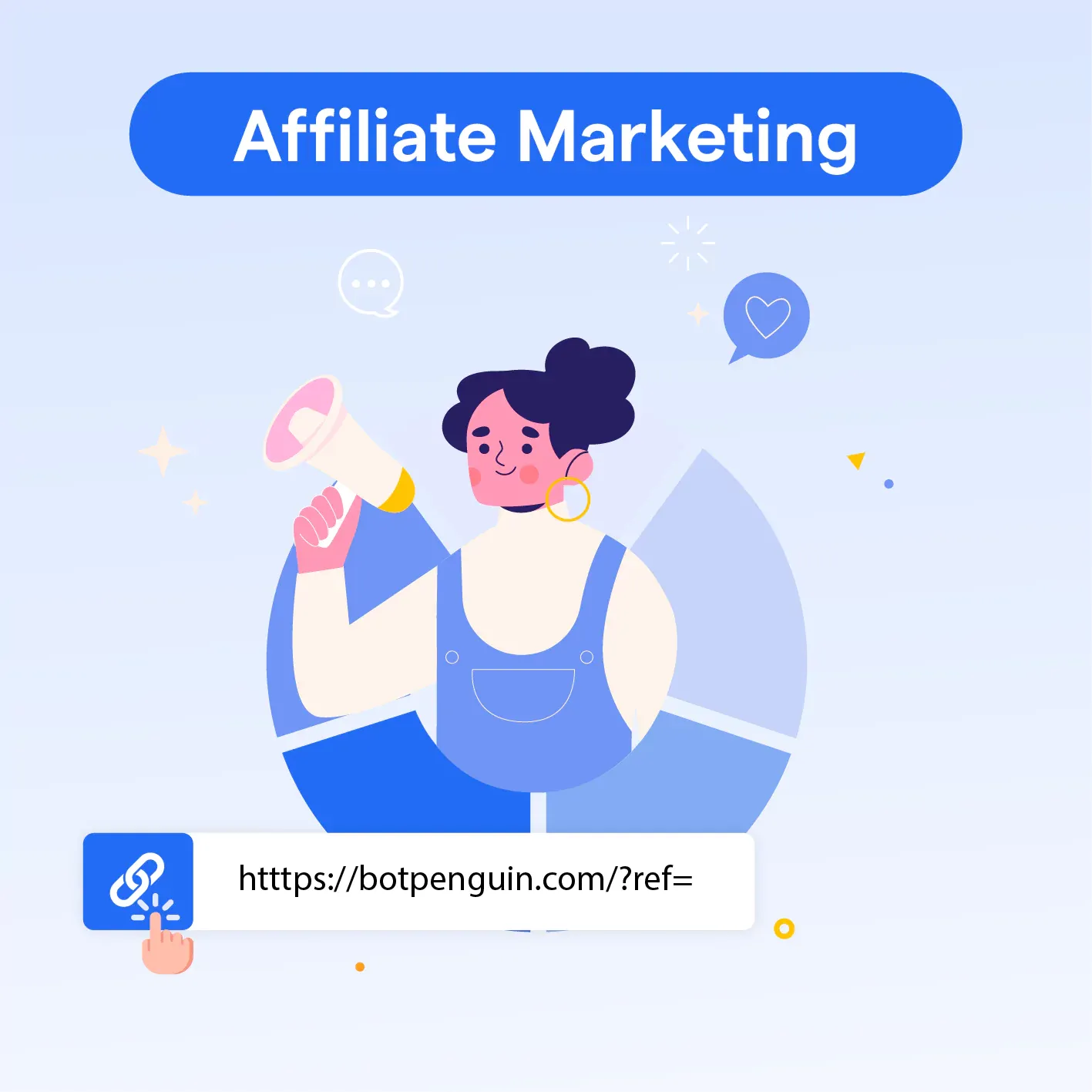What is Affiliate Marketing?
Imagine if each time you recommended a cafe to a friend, and they decided to visit for a cup of coffee, the cafe owner handed you a small 'thank you' discount or cash! Affiliate Marketing works on a very similar principle.
Affiliate Marketing, in essence, is about promoting someone's business for a reward. It involves an individual (let's call them an affiliate) teaming up with a company for marketing their products or services.
What's in it for the affiliate, you wonder? Well, for every purchase made via a unique link provided by the company, affiliates receive a piece of the profit- also known as a commission.
Put simply, being an affiliate means leveraging your audience to sell products or services for a business.
The avenues for it? The options are quite diverse: blog posts, YouTube videos, Instagram stories, or even engaging podcasts.
You earn a particular 'cut' or percentage from the sale when someone makes a purchase using your custom affiliate link.
Commission forms the heart of Affiliate Marketing - it's literally the 'paycheck' for your promotional efforts.
The commission structure varies across different programs, but it's typically a chunk of the total sale that the business makes through your affiliate link.
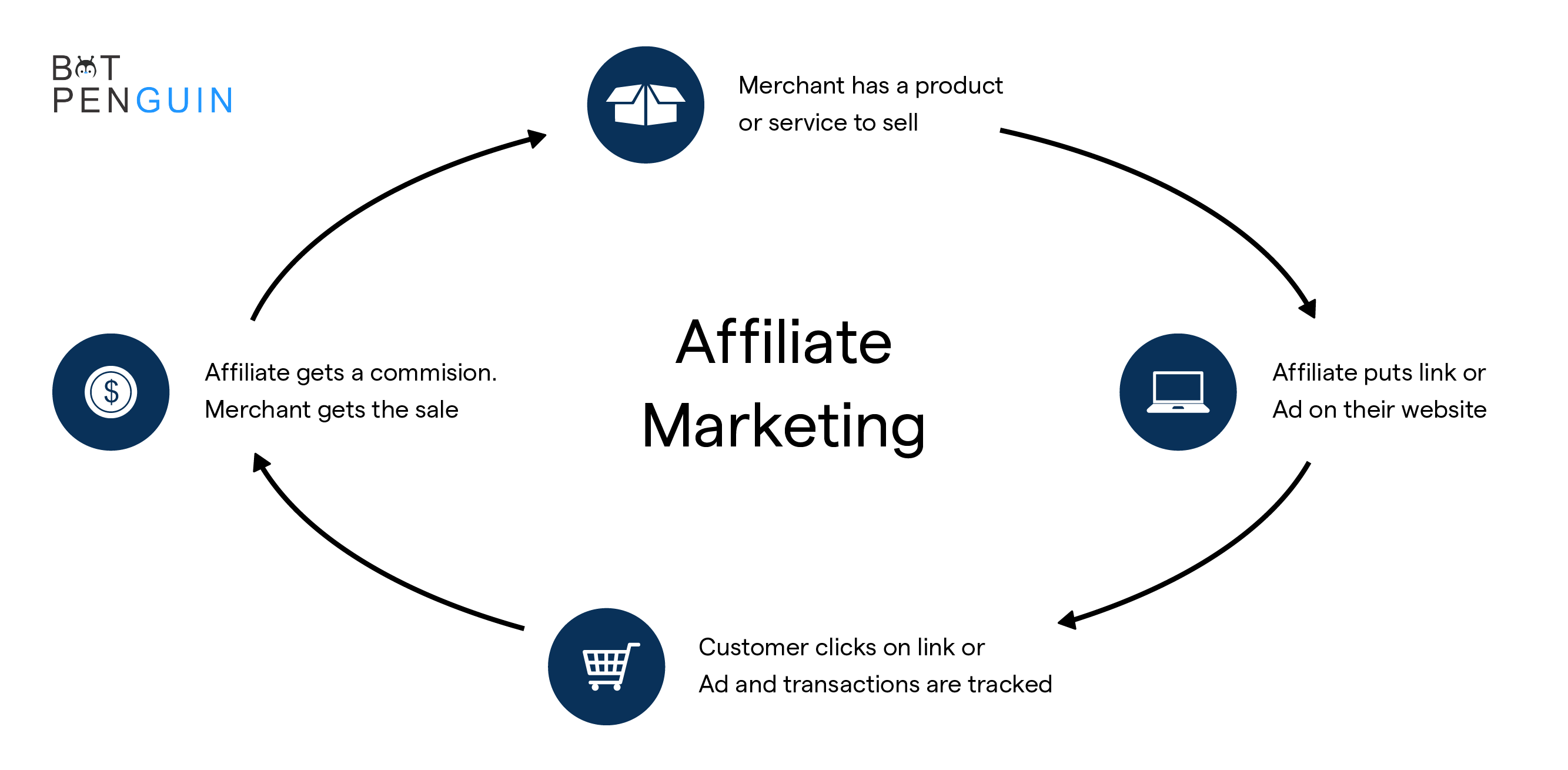
What are Affiliate Marketing Programs?
Affiliate Marketing Programs are like the rulebook of a sport - designed by businesses to outline the 'how-tos' of the affiliate marketing game they curated.
The program helps affiliates by providing all the necessary details, such as the commission structure, the terms of collaboration, and promotional resources like affiliate links.
Why should you do Affiliate Marketing?
Curious why Affiliate Marketing is an amazing prospect? Let's see the benefits it offers.
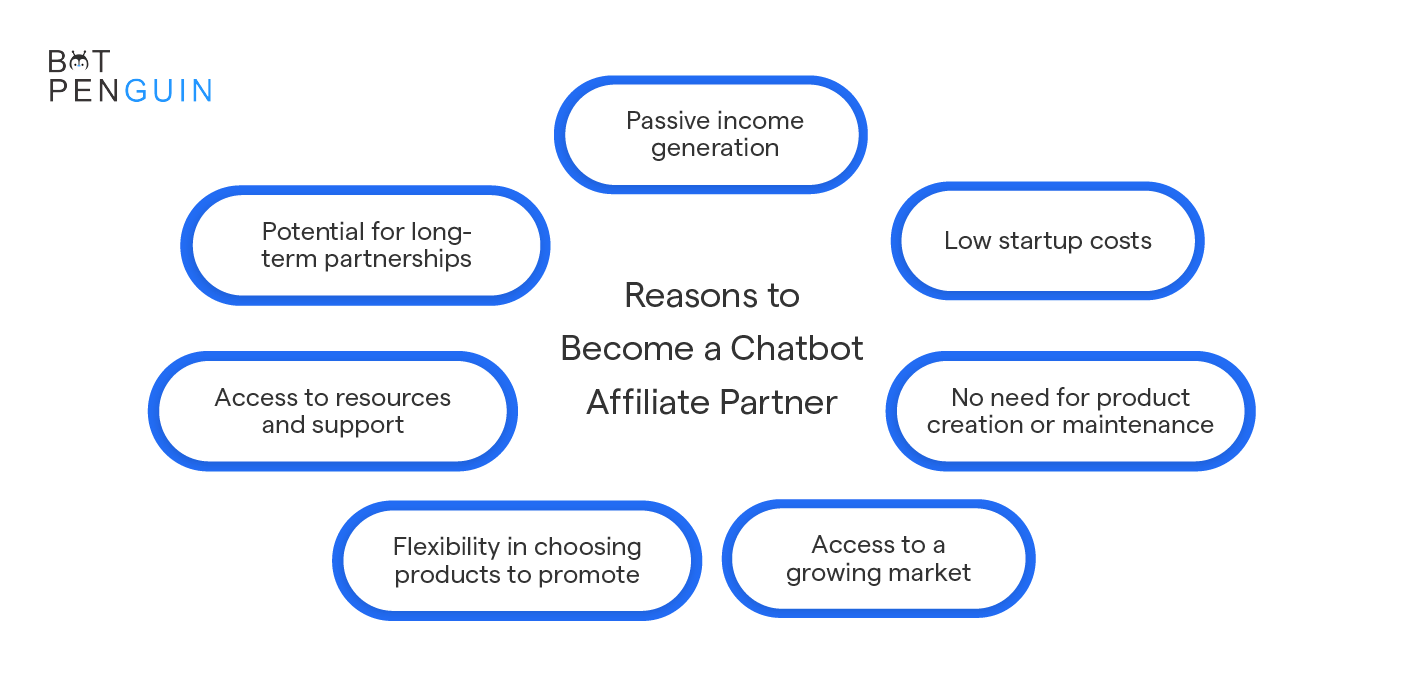
Earnings 24X7
With Affiliate Marketing, you could be earning while catching up on some sleep or binge-watching your favorite series.
Essentially, once your promotional content, like a well-crafted blog post or a detailed YouTube tutorial, grabs attention and traffic, it could rake in regular commissions over time.
Minimal Starting Expenses
Affiliate Marketing doesn't demand you to hit high startup costs. Instead, create engaging, relatable content using your time and dedication without worrying about initial product creation or financial investment.
No Troublesome Customer Support
Remember the times when dealing with customer complaints made you want to pull your hair out?
Wave those annoying after-sales services goodbye. Once a purchase is made through your affiliate link, the company offering the product handles customer grievances while you bask in your commission.
Work on the Go
Affiliate Marketing gives you the liberty to work from anywhere. All you need is to be hooked on a stable internet connection, making it perfect for digital nomads and those who yearn for flexibility in their work location.
When to do Affiliate Marketing?
Understanding when to dive into affiliate marketing requires keeping some vital checkpoints in mind.
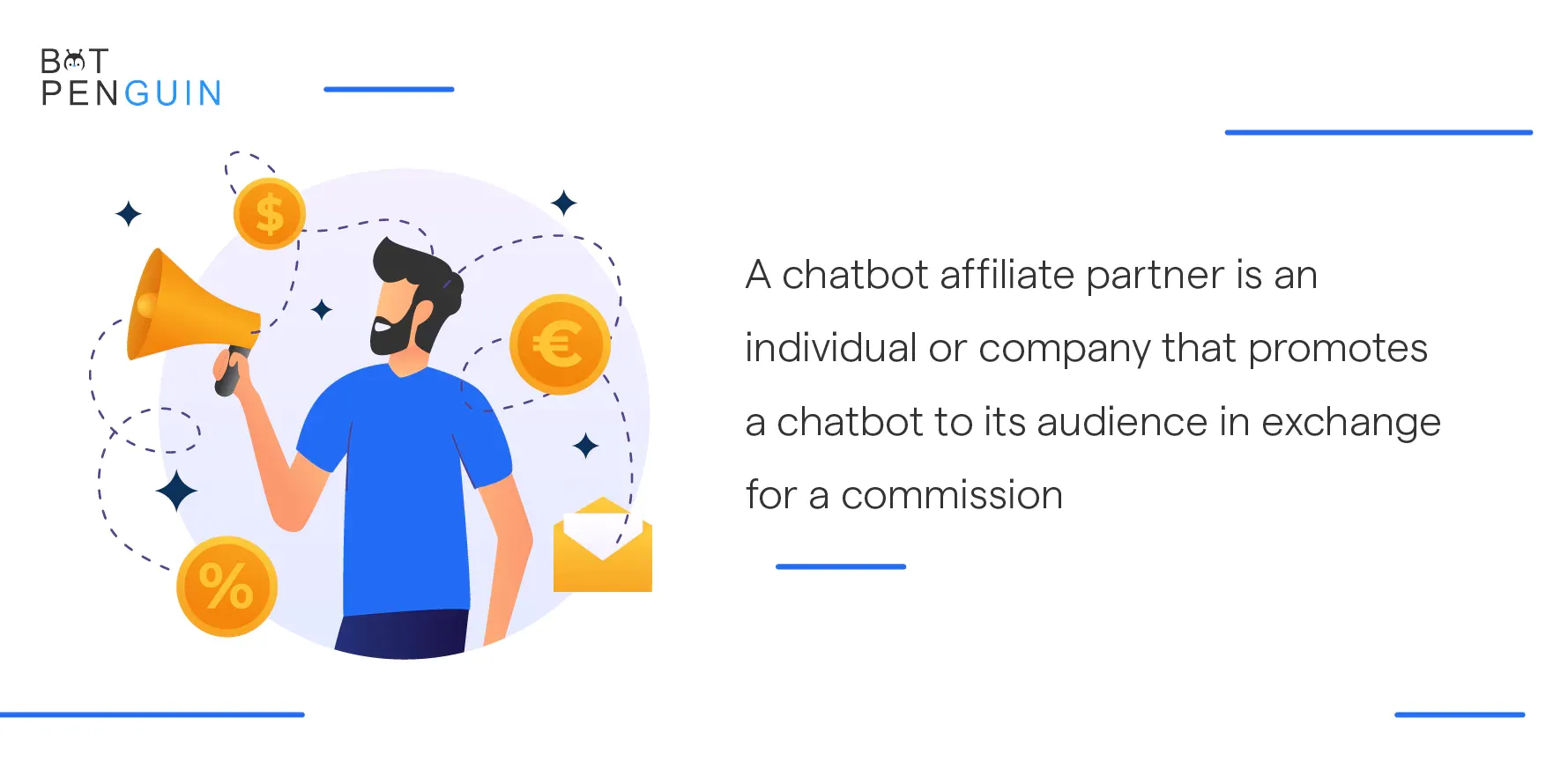
Building a Trustworthy Online Identity
The first step towards becoming a successful affiliate is to build a platform where your audience trusts your reviews and recommendations.
Whether it's a thoughtfully written blog, an engaging YouTube channel, an informative podcast, or an insightful email newsletter - think of it as your foundation.
Gaining Sufficient Traffic
To capitalize on affiliate marketing, you need an audience. Try to ensure a steady flow of traffic on your platform. The more your affiliate product is seen, the higher the likelihood of earning a good commission.
Know Your Product
Successful promotion is often driven by personal experience and conviction about the product you're touting. Understanding its worth makes it easier to confidently promote it to others.
Choosing a Reliable Affiliate Program
An effective affiliate program offers an attractive commission rate, reliable tracking of your sales, and a range of resources to assist you along your journey.
Where is Affiliate Marketing done?
Different platforms offer various ways to engage in successful affiliate marketing.
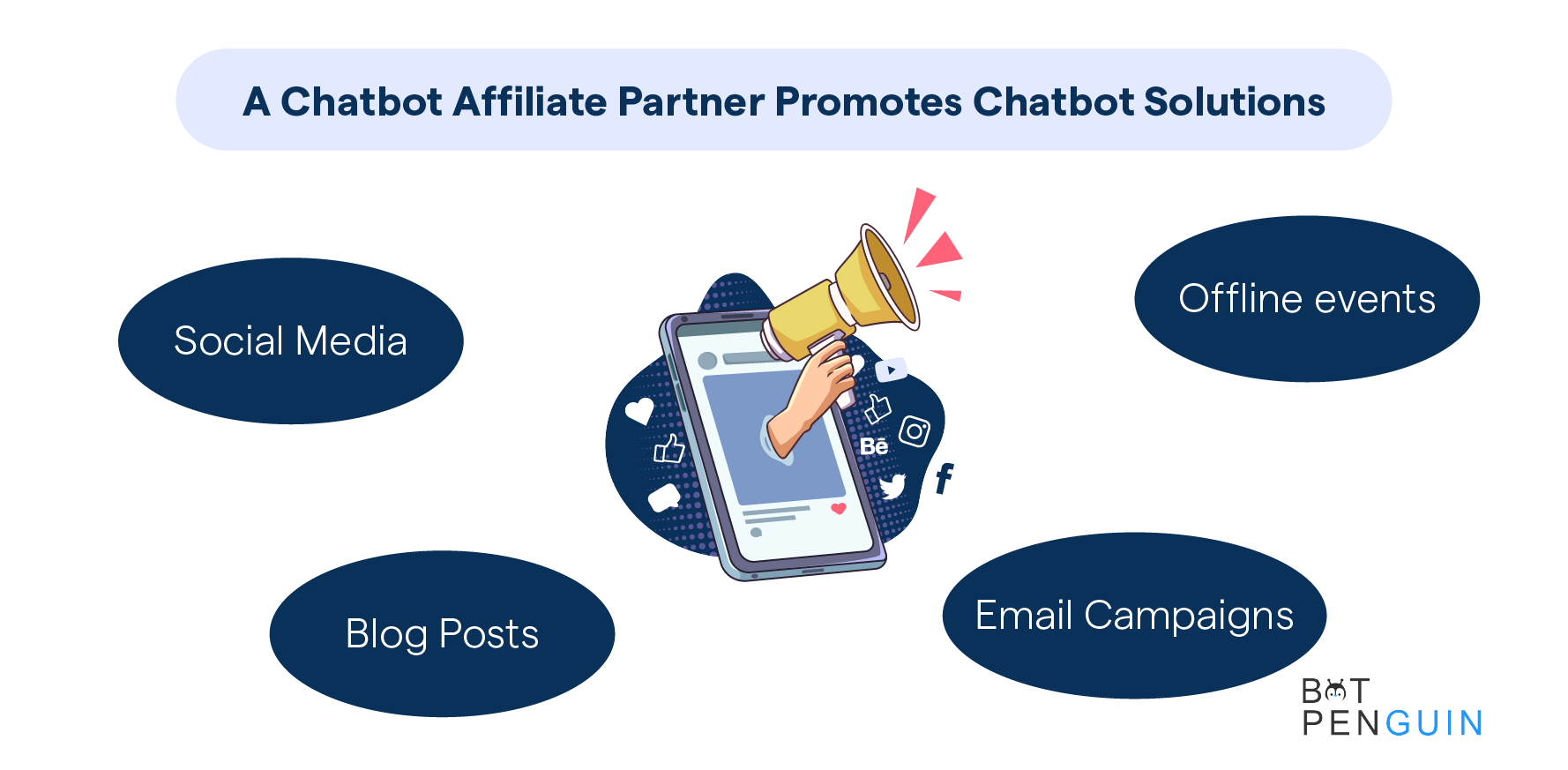
Blogs
Celebrate your flair for writing and connect with readers by writing comprehensive product reviews or creating step-by-step tutorials on a blog.
YouTube Channels
If working with video content is your strength, developing a YouTube channel is an excellent idea. Unboxing videos, reviews, or detailed tutorials can become interesting promotional content.
Email Marketing
Email newsletters present an opportunity for direct, personalized communication with your interested subscribers, making affiliate product promotion effective.
Social Media Platforms
Whether it's Instagram, Twitter, or Facebook, utilizing social media platforms, where each follower is a potential customer, can be a smart approach to promoting products and driving traffic to your affiliate links.
Who Benefits from Affiliate Marketing?
Evaluating the types of people and companies that benefit from affiliate marketing.
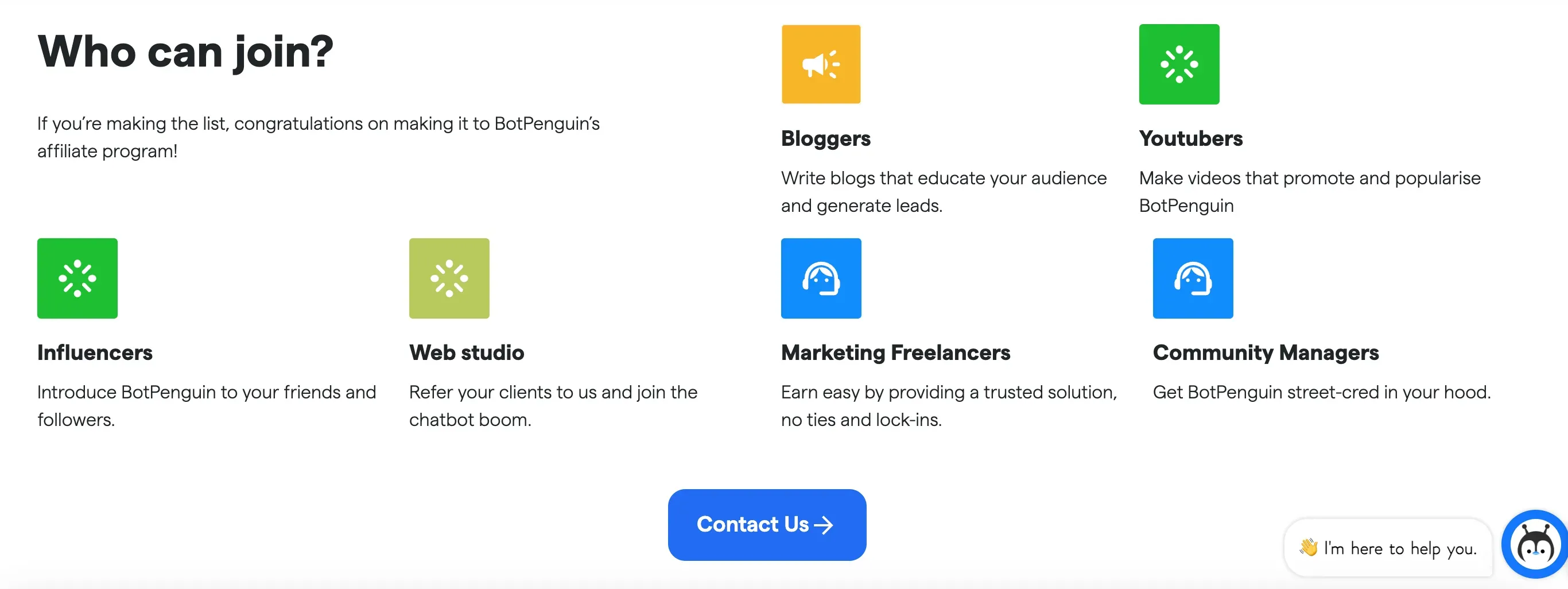
Bloggers
For bloggers, affiliate marketing offers an avenue to generate passive income from their blog posts. It's an ideal monetization strategy as it doesn't interrupt the user experience with intrusive ads.
Companies
Through their affiliate programs, companies get more visibility for their products and only pay when a sale is made. This makes affiliate marketing a low-risk and cost-effective form of advertising.
Suggested Reading:
Discover the 20 Best High Ticket Affiliate Programs
Online Course Creators
Online course creators use affiliate marketing to increase sales of their courses. They recruit affiliates to promote their courses and in return, offer them a cut from each sale.
Social Media Influencers
Social media influencers use their strong online presence to earn money through affiliate marketing. They promote products to their large followers base and earn a commission for every sale made.
Affiliate Marketing Terms
Her are some common terms that are used frequently in affiliate marketing.
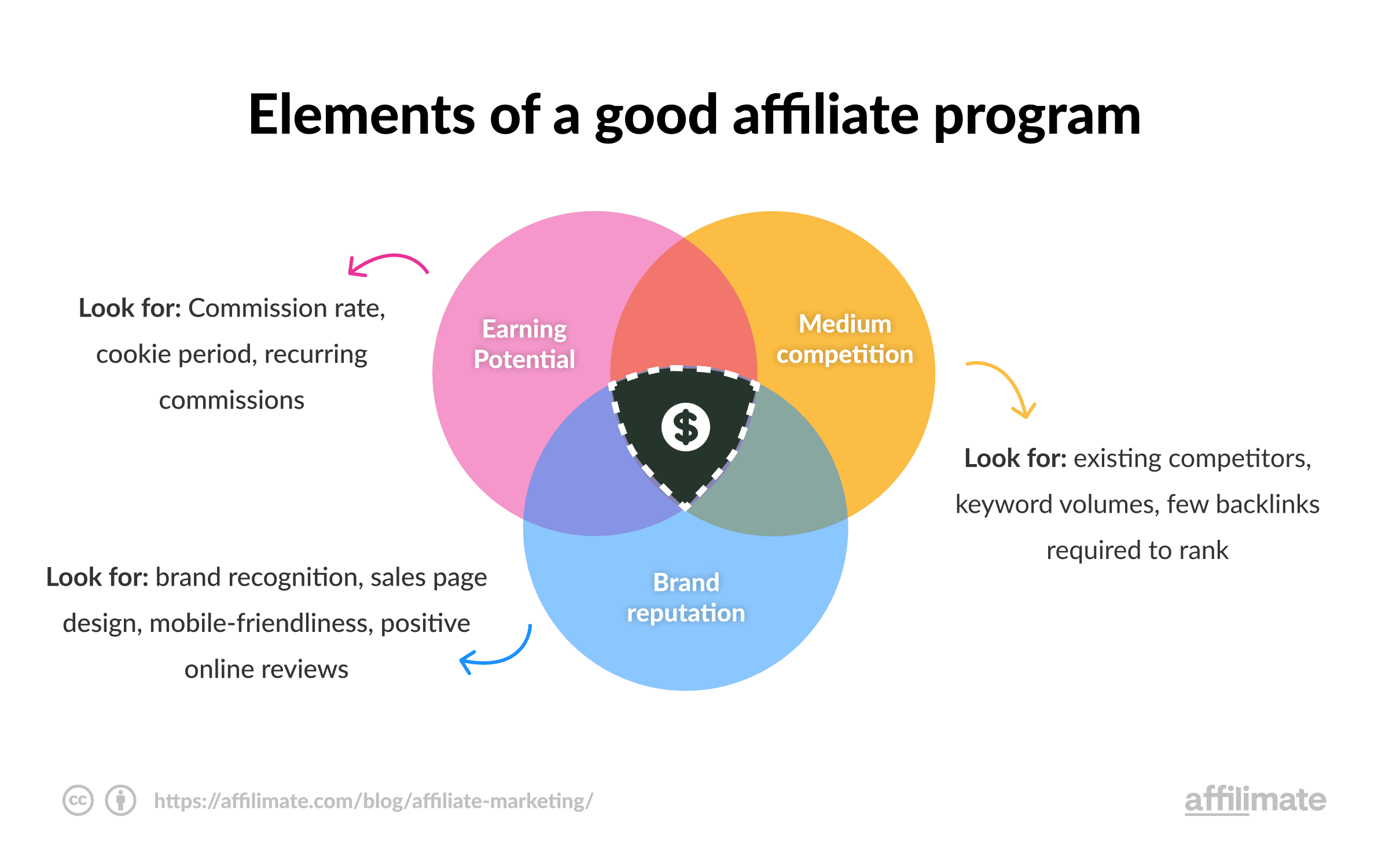
Affiliate Link
This is a unique URL that tracks the traffic you send to the company's website. This link is used to credit you for each successfully referred sale.
Click-Through Rate (CTR)
This is the percentage of your audience that clicks on your affiliate links.
Conversion Rate
This refers to the percentage of people who click your affiliate link and make a purchase.
Cost Per Action (CPA)
This refers to the amount you earn each time a visitor takes a specific action through your affiliate link. This could be a purchase, a sign-up, etc.
Absolutely. Here are an additional eight terms often used in affiliate marketing:
Cookie Duration
This refers to the period during which your affiliate link can earn you commissions after a user clicks on it. The duration varies from one affiliate program to another and can range from a single day to several months.
Return Days
Similar to cookie duration, return days refers to the number of days a customer has to return to the seller's website and make a purchase, allowing the affiliate to still earn a commission.
Two-Tier Affiliate Marketing
In this model, affiliates earn commissions on their conversions as well as a percentage of commissions from other affiliates they referred to the program.
Affiliate Network
This is a group of associated companies that often offer related or complementary products and commonly run their affiliate programs through the same platform.
Commission Rate
This is the percentage or fixed amount that an affiliate earns from each sale made through their affiliate link.
Payment Threshold
This is the minimum amount an affiliate must earn in commissions before they can withdraw their earnings.
Suggested Reading:
The Ultimate Guide to Profitable Affiliate Marketing Niches
Pay Per Click (PPC)
This is an affiliate marketing strategy where the affiliate earns a commission each time a user clicks on their affiliate link, regardless of whether a sale is made.
Payout
This refers to the payment an affiliate receives after accruing a set amount of earned commissions.
How Does Affiliate Marketing Work?
In this section, we will explore the mechanics behind the functioning of affiliate marketing and its various components.
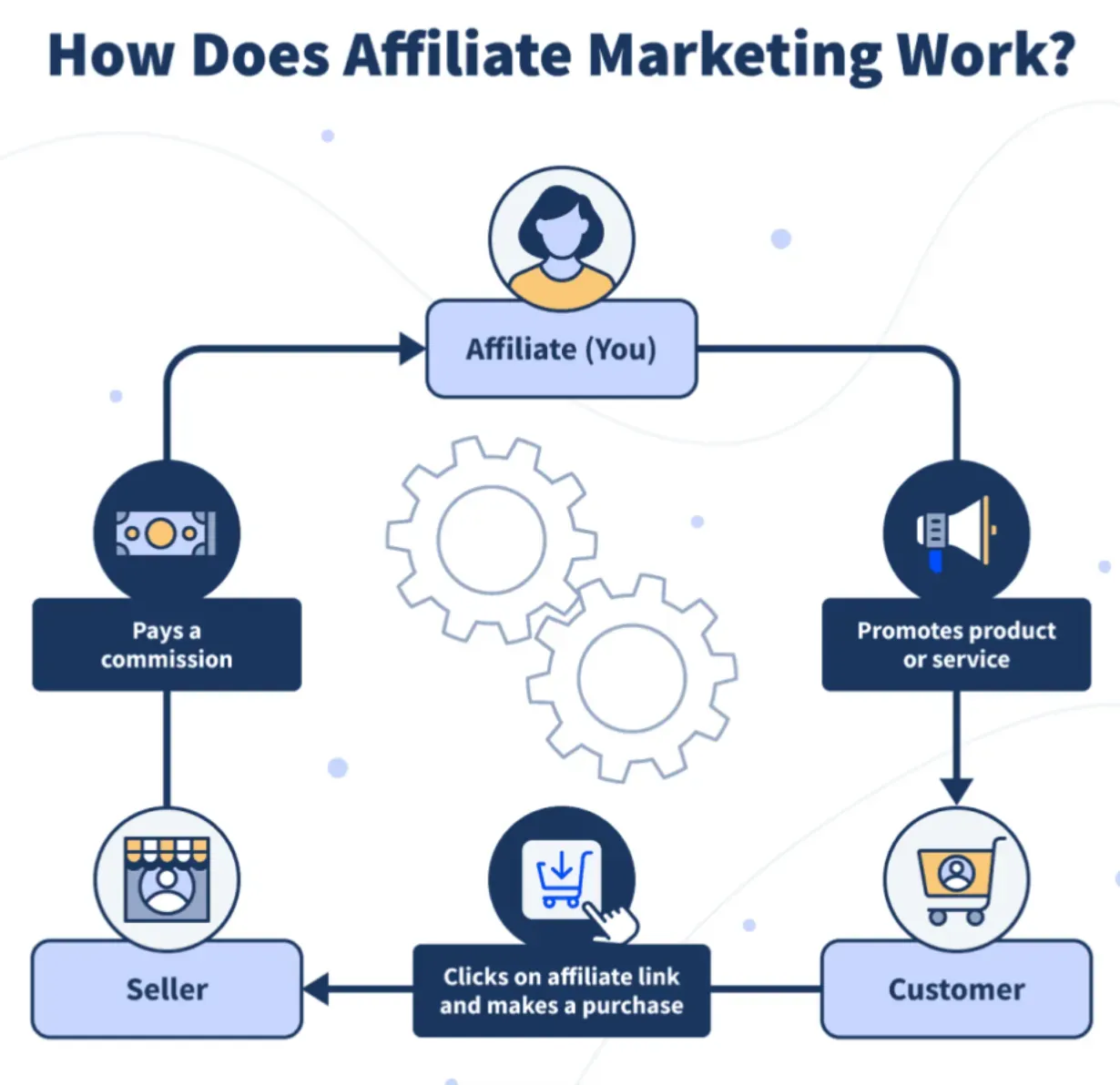
Establishing Partnerships
To begin with, affiliates partner with businesses or entrepreneurs who wish to promote their products or services.
These businesses provide the affiliates with a unique tracking link, which they use to direct potential customers to the business's website.
Creating Engaging Content
Affiliates create informative and engaging content, such as blog posts, videos, or social media posts, to attract an audience.
Within this content, they incorporate their unique affiliate link, which leads the audience to the promoted products.
Driving Traffic towards Affiliate Content
The next step for affiliates is to drive traffic towards their content. They accomplish this by leveraging SEO techniques, social media marketing, email campaigns, and other forms of advertising.
They aim to reach a wide audience interested in the specific niche the affiliate is promoting.
Encouraging Conversions
Affiliates use persuasive content and skillful placement of their affiliate links to entice the audience to click on them and make a purchase.
This often includes well-placed calls-to-action and providing valuable content that showcases the benefits of the promoted product or service.
Earning Commissions
Lastly, when a visitor clicks on an affiliate link and completes a desired action (such as making a purchase), the affiliate earns a commission.
The earnings can vary depending on factors like the product's price, the commission rate set by the business, and the total number of successful conversions.
How to Become an Affiliate Marketer?
In this section, we'll cover the necessary steps and best practices to become a successful affiliate marketer.
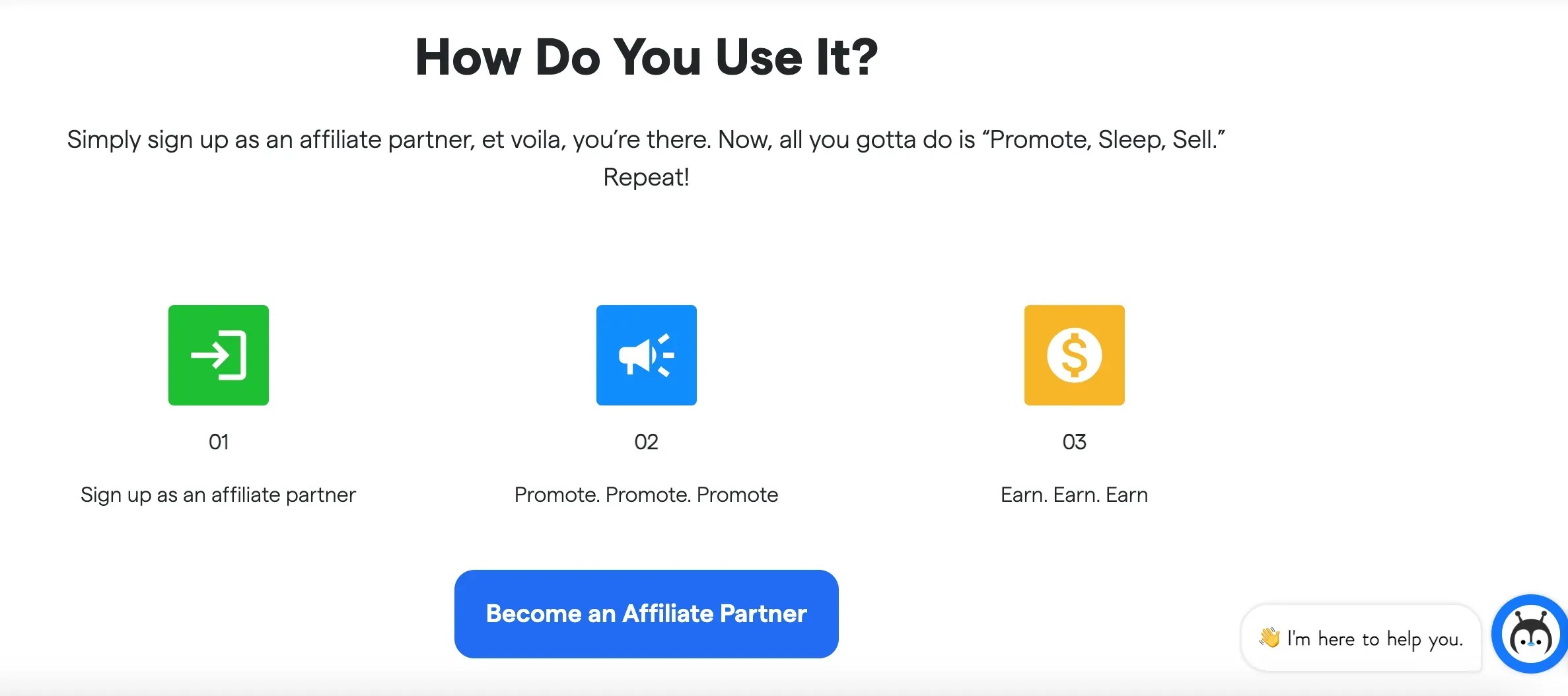
Choose Your Niche
Identify your area of interest or expertise. A niche allows you to focus on a specific market and build a strong, loyal audience.
Research Affiliate Programs
Investigate various affiliate programs and networks that align with your niche. Look for programs offering competitive commissions, quality products, and reliable support.
Create Quality Content
Produce valuable, informative, and engaging content tailored to your target audience. Diversify your content types, such as blog articles, videos, podcasts, or social media posts, to reach and engage a broader audience.
Set Up Your Website or Blog
Build a professional-looking website or blog that serves as a central hub for your content and affiliate links. Optimize your site for search engines (SEO) to drive organic traffic to your content.
Establish an Online Presence
Create profiles on popular social media platforms and engage with your audience. Share your content, join relevant groups, and participate in discussions to extend your reach and grow your following.
Develop Email Marketing Strategy
Capture your visitors' email addresses and nurture relationships with them through email marketing campaigns. Provide useful information and occasional promotions to keep subscribers interested and engaged.
Learn from Experts and Peers
Join online communities, attend webinars, or participate in courses to learn from successful affiliate marketers and stay updated on industry trends.
Monitor and Analyze Performance
Regularly analyze the performance of your content, website, and affiliate links. Use tools like Google Analytics to keep track of traffic, conversions, and revenue to identify areas for improvement.
Adapt and Optimize
Refine your content, website, and marketing strategies based on the data you gather. Continuously learn and grow your skills to improve your performance and achieve better results.
Be Persistent and Patient
Affiliate marketing success doesn't happen overnight. Be prepared to invest time and effort into creating quality content, building an audience, and refining your strategies to see significant results.
BotPenguin’s Affiliate Marketing Program
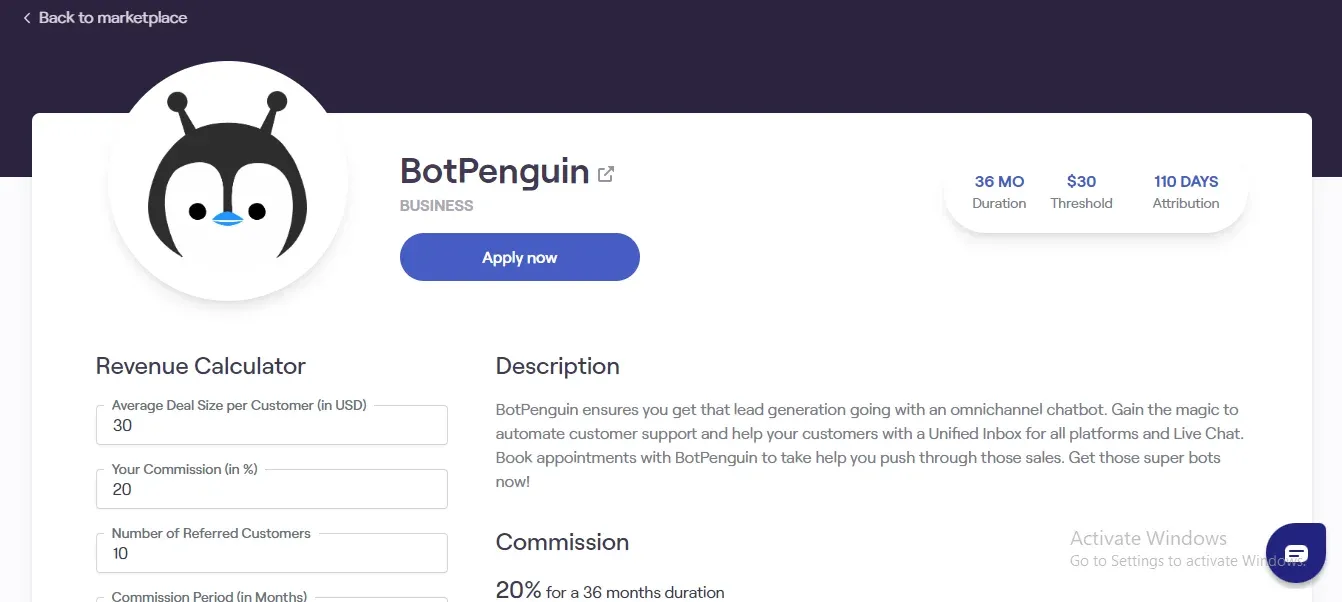
The best affiliate marketing program can vary depending on individual needs and preferences.
However, a popular and highly regarded program is BotPenguin.
BotPenguin offers a comprehensive and user-friendly Chatbot building platform.
With a strong tracking and reporting system, affiliates can accurately monitor their performance and earnings.
BotPenguin also provides various resources and support to help affiliates succeed, including marketing materials, training, and prompt commission payouts.
Whether new to affiliate marketing or an experienced marketer, BotPenguin offers a reliable and rewarding program to maximize your earnings and grow your online business. Try it out!
Frequently Asked Questions (FAQs)
How much money can you make as an affiliate marketer?
The amount of money you can make through affiliate marketing varies greatly and depends on numerous factors such as your audience size, niche, commission rate, and conversion rate.
How do I become an affiliate marketer with no money?
You can start affiliate marketing with no money by creating a free blog or YouTube channel, producing quality content, and using free online marketing techniques to drive traffic.
How long does it take to make money with affiliate marketing?
While some affiliates see success early, for many it takes significant time and effort. Factors such as your marketing strategy, niche, audience size, and quality of content play critical roles.
Can you do affiliate marketing without a website?
Yes, you can do affiliate marketing without a website. You can utilize platforms like YouTube, social media, and email newsletters for your promotional efforts.
Is affiliate marketing still profitable in 2024?
Absolutely. As long as people are buying products online, there will always be a space for affiliates to earn commissions. However, competition has increased, so it's essential to differentiate yourself and provide high-value content to your audience.
